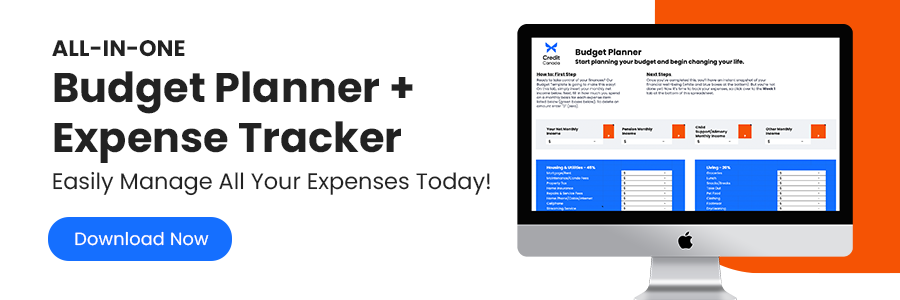
What You Should Consider When Making a Will
You can never be too prepared. By planning ahead, you have more control regarding what happens in the future—and in today's litigious times, making a will can be a safety net for grieving families. Of course, creating a will or appointing a guardian for your children doesn’t mean you are going to pass away any time soon. However, it does mean that when you do pass away, others will know what your wishes are.
How to Make a Will in Canada (and other Considerations)
I am always amazed by how uncomfortable many people are when the topic of wills, guardianship and Power of Attorneys come up in conversation. Some people simply won’t discuss it – out of sight out of mind. But what they don’t realize is that their wishes may not be followed if they haven’t formally made them known. The following are a few important considerations you need to make regarding Canadian wills.
What Happens if You Pass Away Without a Will
A will, sometimes called a "Last Will and Testament," is a formal document that must follow certain rules to be considered legal. If you die without a will, the law says you have died “intestate” which means you left no instructions as to how your property and other assets are to be divided and distributed. In this case, the laws in your province or territory govern how your estate will be distributed.
Without a legal will, it can be expensive and time-consuming for your family to deal with your personal affairs. If you should pass away without a will and you have no surviving relatives, your estate will automatically be passed to the government.
What Can I Include in a Will?
In your will, you can determine how you want your estate to be distributed, and you can include friends, charities and organizations, as well as family members. A will also allows you to appoint an executor to oversee the entire process.
If you are in a common law relationship, a will can also ensure your partner receives whatever assets you wish they inherit from you, because in some provinces (including Ontario) a common law spouse receives nothing if there isn’t a valid will. (Unless they make a claim through the courts, which is both costly and time-consuming.) A will also allows you to determine the ages at which minors can receive their inheritance from you, as well as an appropriate guardian for any minor children you may have.
How Much Does Creating a Will Cost?
If you have minor children, a home and/or other assets, you should consider meeting with a lawyer to draft a will. Creating a simple will starts at around $400. There are also online will kits available for writing wills, but it's important to follow the instructions very carefully. Depending on the province or territory you live in, you may also have the option of creating a handwritten will, which is known as a Holograph Will.
Some provinces, including Ontario, consider Holograph Wills to be legal documents; however, it must be completely written out in your own handwriting and signed and dated by you. A Holograph Will doesn’t need to be witnessed, but it should state who inherits your property and other assets, and it should also name an executor.
Who Will Take Care of My Children?
In your will, you should name a guardian for your children if they are under 18 years old. This gives you control over who is given the responsibility of raising your children if they don’t have a surviving parent – you want to be able to appoint someone you trust. If there is no surviving parent, the court will normally follow your wishes as set out in your will, as you are in the best position to determine the best interests of your children; however, without a will that explicitly states who will be the guardian of your children, the court will determine the matter of guardianship.
What Happens to Joint Bank Accounts?
Many people set up joint bank accounts and assume that when one person passes away, the other person will continue to have access to the account. But recently a couple of friends of mine mentioned that when one of their parents passed away, the other parent didn’t have access to the bank account; instead the accounts were automatically frozen. I am on my father’s bank account so I looked into this matter myself. What I discovered is that if you want the account to remain accessible, you need to make sure it's set up as “Joint With Right of Survivorship”. If you have a joint bank account with someone, check with your bank to see if your joint accounts have been set up in this manner.
Why You Need a Power of Attorney (POA)
It's also important to have a Power of Attorney (POA) for Personal Care, as well as a POA for Property. These are written documents where you give someone the power to make decisions for you if you should become unable to make these decisions yourself. Again, it lets you appoint someone you trust to make decisions on your behalf. You can also appoint more than one person to make these decisions jointly. Both a POA for Personal Care and a POA for Property cease on your death.
A POA for Personal Care includes your healthcare, medical treatment, diet, housing and safety. A POA for Property includes property and finances (i.e., banking matters, managing your investments, paying your monthly bills, etc.). If you don’t have a POA for Personal Care, some decisions can be made by your family without a court order. However, when it comes to financial decisions, legal authority is required. If you don’t have a POA, someone would have to apply to the courts for permission to be your representative or a guardian would be appointed by either your provincial government or by the court.
Why You Need to Write a Will Now
It's easy to push off writing a will for another time, but you never know when it may be too late. Not thinking about the above topics now could cause significant stress for your family later. By dealing with these matters while you're still able to do so, you'll have more control over the situation. Consider this:
- Who do you want to make medical decisions on your behalf?
- Who do you want raising your children?
- Who do you want to inherit your guitar collection?
If you live in Ontario and you'd like more information on wills, you can visit the Ministry of the Attorney General website.
Writing a Will and Worried About Your Debts?
For information on dealing with your finances and debt, contact Credit Canada to arrange a free confidential appointment with one of our certified Credit Counsellors. You can give us a call today at 1.800.267.2272 to book a phone appointment – it’s free and confidential – or contact us online. We can discuss your financial situation to come up with the best plan that works for you!
Frequently Asked Questions
Have questions? We are here to help
A Debt Consolidation Program (DCP) is an arrangement made between your creditors and a non-profit credit counselling agency. Working with a reputable, non-profit credit counselling agency means a certified Credit Counsellor will negotiate with your creditors on your behalf to drop the interest on your unsecured debts, while also rounding up all your unsecured debts into a single, lower monthly payment. In Canada’s provinces, such as Ontario, these debt payment programs lead to faster debt relief!
Yes, you can sign up for a DCP even if you have bad credit. Your credit score will not impact your ability to get debt help through a DCP. Bad credit can, however, impact your ability to get a debt consolidation loan.
Most people entering a DCP already have a low credit score. While a DCP could lower your credit score at first, in the long run, if you keep up with the program and make your monthly payments on time as agreed, your credit score will eventually improve.
Anyone who signs up for a DCP must sign an agreement; however, it's completely voluntary and any time a client wants to leave the Program they can. Once a client has left the Program, they will have to deal with their creditors and collectors directly, and if their Counsellor negotiated interest relief and lower monthly payments, in most cases, these would no longer be an option for the client.

